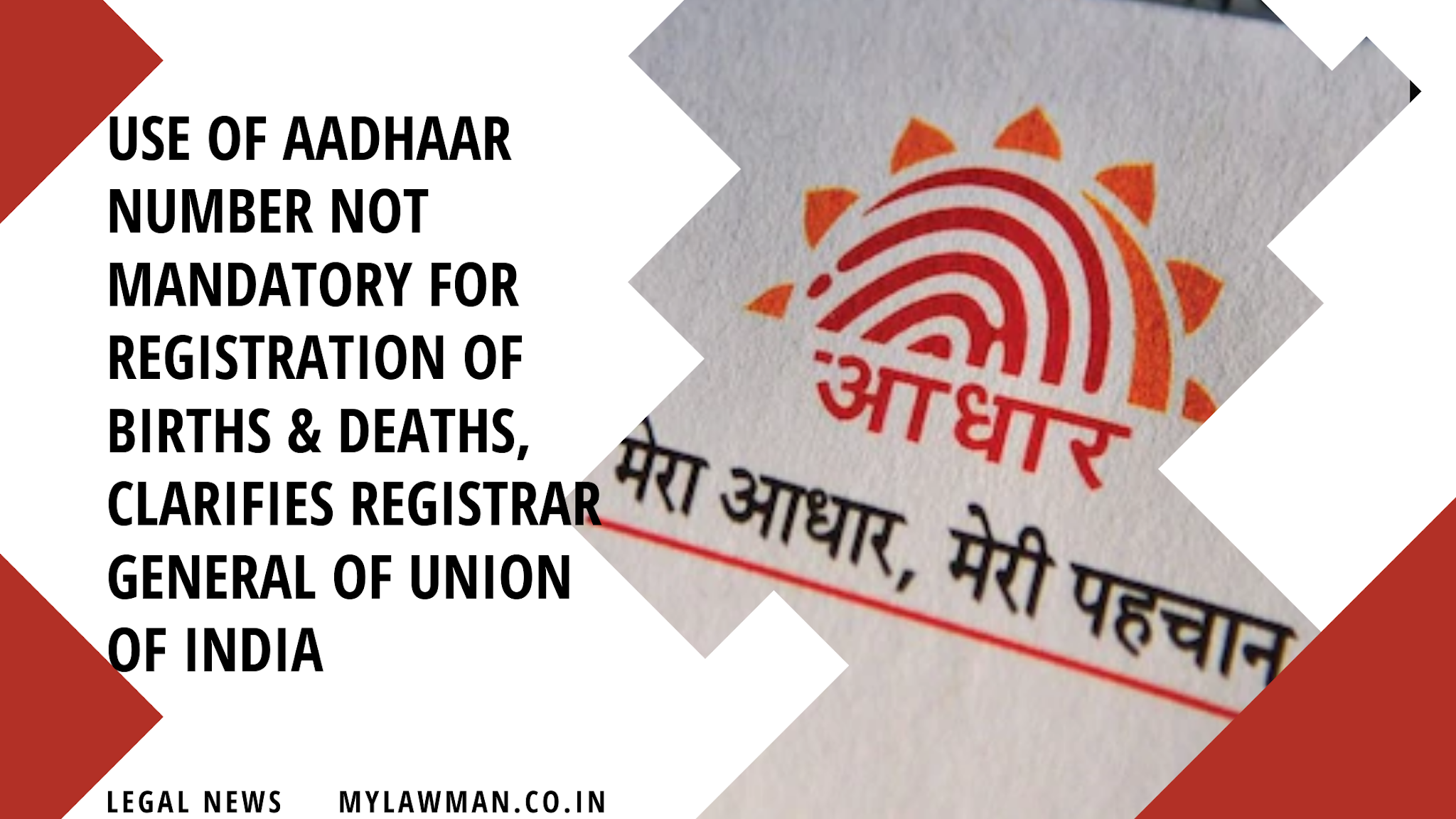[Legal News] Use of Aadhaar Number Not Mandatory For Registration of Births & Deaths, Clarifies Registrar General of Union Of India
The Registrar General of India (RGI) on Tuesday clarified in a recent reply to an RTI request that the provisions of Aadhaar is not mandatory for the registration of births and deaths. This information was provided by the RGI in response to an RTI.
If
a person gives an Aadhaar number of his choice, it should compulsorily ensure
that the Aadhaar is not printed out under any circumstances and also that the
entire Aadhaar number is not stored in the death and birth database according
to the notification by the RGI. The notification also stated that the first
four digits of the Aadhaar number can be printed if necessary.
The
RTI application was made by Visakhapatnam-based advocate Mr. MVS Anil Kumar
Rajagiri, a resident of Andhra Pradesh to which this clarification was made.
The question put forth by him in the application was whether Aadhaar is
mandatory for registration of death or not.
The
RGI referred to an April 2019 circular in reference to this to clarify that
"Registration of births and deaths in the country are being done under the
provisions of Registration of Births and Deaths (RBD) Act, 1969 and there is not a provision in the RBD Act which permits the use of Aadhaar for establishing the
identity of an individual for the purpose of registration of birth and death.
There is no law framed for such use of Aadhaar, section 57 (Aadhaar
authentication) is not attracted, therefore, the requirement of Aadhaar for
registration of births and deaths is not mandatory".
The
RGI also noted that the registration of births and deaths was done under the
Registration of Births and Deaths (RBD) Act, 1969, which was a Central law. But
it also added that the implementation of the provisions of the said Act lies
with the State/UT governments.
For establishing the identity of an
individual for the purpose of registration of birth and death on voluntary
basis, an applicant may provide the physical copy of Aadhaar number or
Enrolment ID number as one of the acceptable documents, the Ministry further
provided. The registering authority must ensure that the first eight digits of
the Aadhaar number are masked with black ink.
In the famous case of Justice KS Puttaswamy (Retd.)
& Anr v. Union of India & Ors, the Supreme Court had read down the provision for Aadhaar
authentication and it held that the portion of Section 57 of the Aadhaar
(Targeted Delivery of Financial and Other Subsidies Benefits and Services) Act
2016, which enables body corporate and individual to seek authentication, is
"unconstitutional".
The RGI had decreed that Aadhaar
number would be required for the purpose of establishing the identity of the
deceased for the purpose of death registration in 2017. The RGI noted that “the
portion of Section 57 of the Aadhaar Act in 2019. The circular made by the
Ministry was sent to the Chief Registrars of births and deaths of all States
directing them to ensure that local registering authorities did not demand
Aadhaar as a mandatory requirement. The circular also added that Aadhaar could
be accepted as one of the acceptable documents if produced on a voluntary
basis.
This news has been reported by By Yashasvi Kanodia
